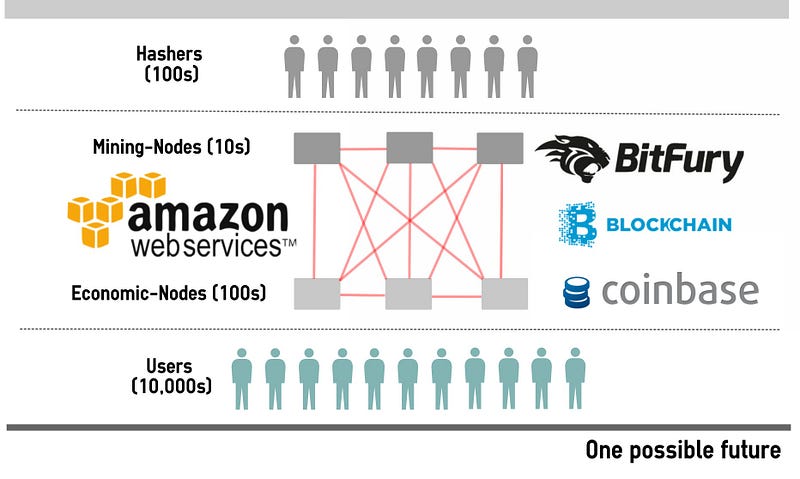Welcome to the forum
@watashi-kokoto, glad you decided to come join us here, though the title of this thread is a bit offensive, the way I see it does not matter who the shills are, especially considering that in most cases this can not be proven. What does matter is the content of our arguments, if we are being rational and civil and our arguments have merit then we are adding to the discussion, when people start insulting and fear mongering it can be seen as being counter productive.
Here is an explanation of my theory on the governance of Bitcoin:
I think that Bitcoin relies on the economic self-interest of the masses to govern consensus. I actually perceive Bitcoin as being the evolution of governance. Voluntary and decentralized non geographically bound governance, the evolution of the modern democracy if you will into something better and superior.
Bitcoin's governance mechanism is a form of democracy, not a democracy in the way that we know today. It is very different, I think better. However there are very democratic aspects to it, like reflecting the will of the economic majority. Which is not that dissimilar to reflecting the will of the people, which is what democracies are supposed to do in theory at least.
Bitcoin is interesting as a form of democracy, because it is different to modern state democracies in that it places positive incentives on a select group of people who essentially vote in the interests of the economic majority, almost the opposite of how modern state democracies work, since our representatives in modern state democracies often have perverse incentives acting upon them. Which is what makes decentralized proof of work blockchains arguably a superior form of governance.
VeritasSapere said:
Consensus is an emergent property which flows from the will of the economic majority. Proof of work is the best way to measure this consensus. The pools act as proxy for the miners, pools behave in a similar way to representatives within a representative democracy. Then in turn the miners act as a proxy for the economic majority. Since the miners are incentivized to follow the economic majority. In effect the economic majority rules Bitcoin, in other words the market rules Bitcoin. Bitcoin relies on the economic self-interest of the masses to govern consensus.
This only works however if we have multiple viable alternative implementations for people to choose from, since there need to be multiple options to choose from otherwise it is not really a choice. I can go into more depth about my conception of Bitcoin governance but this describes my position well in short form at least.
[doublepost=1458506318][/doublepost]To answer your question more specifically, Classic fits into this picture because it is providing an alternative vision and path for Bitcoin going into the future compared to Core. My own conception of the governance and economics of Bitcoin align much better with both Bitcoin Classic and Bitcoin Unlimited, which is why they get my vote. I am a critic of the road plan Core has laid out for Bitcoin, so having alternative implementations allows me to express this opinion on the network, both by running full nodes and mining. This is critical for the the governance mechanism of Bitcoin to fuction correctly. After all an election with only one party is not really an election at all.



